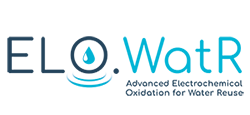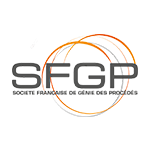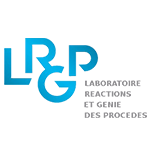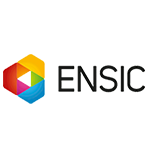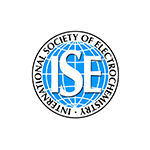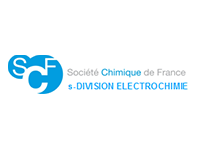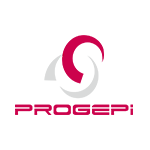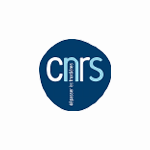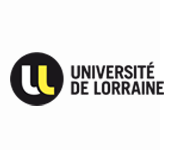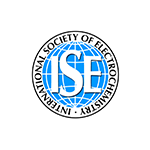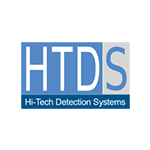|
|
|
ELO.WatR 2020
Welcome to the web page of the 1st International Workshop on Advanced Electrochemical Oxidation for Water Reuse (ELO.WatR) (September 15-17, 2020; switched to virtual mode due to Covid 19 crisis).
Electrochemical advanced oxidation processes have been widely studied by scientists for the last 30 years in applications for water and wastewater treatment.
The novel advanced materials play a key role in electrocatalysis enhancement to promote oxidants formation through both oxygen reduction and evolution reactions. Multifunctional materials have been also recently developed to combine reactions with separation mechanisms in hybrid multi-step treatment systems.
In parallel, the new knowledge in degradation and mineralization mechanisms in real effluents, including intermediates identification / quantification and their related ecotoxicity / biodegradability, gives important information towards the development strategy for real applications. Furthermore, the use of electrochemical engineering tools for upscaling those processes become crucial for a better optimization of reactions and separations mechanisms through reactor design and hydrodynamics studies combined with modeling.
Upon the exciting new scientific and technological insights in this area of research, the goal of this first international workshop is to promote the development of those electrochemical technologies for challenging applications in water and wastewater treatment and reuse by gathering the community around the three main following topics:
- Material sciences & interface studies
- (Electro)-chemical reactions & kinetics
- Electrochemical engineering & industrial applications
Initially planned from March 31st to April 2nd, 2020, it was decided to postpone the 1st edition of ELO.WatR workshop on September 15 to 17, 2020. However, as the sanitary conditions did not come back to normal and to make sure all attendees could participate in the workshop, we took the decision to make ELO.WatR a virtual event.
The detailed scientific program and the book of abstracts for the virtual workshop ELO.WatR I are available online.
(All the presentations on the "Abstracts book & presentations" tab have been added with the permission of the authors)

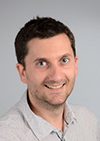
Emmanuel Mousset, Senior Scientist in CNRS, Université de Lorraine, France
After getting an Erasmus PhD from ETeCoS3 joint doctorate program (University of Paris-Est (France), University of Cassino and Southern Lazio (Italy), UNESCO-IHE (The Netherland)) in 2013, Dr Mousset pursued as post-doc successively in National University of Singapore (NUS) and in Helmholtz Centre for Environmental Research (UFZ; Germany).
He obtained a tenured position in 2016 at the French National Center for Scientific Research (CNRS) as senior scientist.
He focusses his research work on advanced oxidation for 10 years, especially with electrochemical processes, for environmental protection including for wastewater treatment and reuse.
He is currently implementing his research topics through collaborative projects with French laboratory (Institut Européen des Membranes (IEM) from Montpellier) as well as with university of Nankai (China), university of Notre-Dame (USA) and university of Cadi Ayyad (Morocco). He has been recently awarded the “International ISE-Elsevier Prize for Green Electrochemistry 2018”.
 François Lapicque, Research Professor in CNRS, Université de Lorraine, France
François Lapicque, Research Professor in CNRS, Université de Lorraine, France
Currently CNRS Research Professor in Reactions and Chemical Engineering Laboratory (CNRS-Univ. Lorraine, Nancy, France).
Graduated in chemical engineering in 1979 in Nancy, Engineer doctor in 1983, Sciences Doctor in 1987. CNRS Senior scientist in electrochemical engineering for 1983.
Along the years, he worked on electroorganic synthesis, electrochemical processes for air and water treatment, metal and alloy deposition, waste treatment and beneficiation and engineering issues in fuel cells and energy conversion.
Approx. 180 papers in journals, 43 PhD students, current collaborations with other French labs in Lorraine, Marseilles, CEA, Tunis and Offenburg, as well as with industrial research centers (ArcelorMittal, Extracthive, R. Bosch GmbH).
He had led the EFCE Party on Electrochemical Engineering from 2002 and 2006 and was chairperson in Division 5 of the ISE in the period 2012-2016.
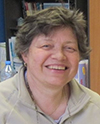
Marie-Noëlle Pons, Research Professor in CNRS, Université de Lorraine, France
Marie-Noëlle Pons got her Chemical Engineering degree in 1977 and a Ph.D. in Physical Sciences in 1984, both in Nancy, France.
She has been affiliated with the Laboratory Reactions and Process Engineering at the University of Lorraine since 1980. She has been CNRS Research Professor since 1996. Her research interests are related to sensors development and use, data treatment, to the treatment of industrial wastewater (textile, leather, wood) by photocatalysis and electrocoagulation, the modelling and control of biotechnological and environmental (wastewater) processes and to process life cycle assessment (applications to chemical processes and agriculture-related systems).
She has been involved in several industrial and international research projects connected to these topics. She has co-authored about 200 papers in peer-reviewed journals and more than 400 presentations in conferences. She has (co)-supervised 35 PhDs. She is chairing the Research Committee of ASTEE (Professional Association on Water and Waste in France) since 2011.

- Enric BRILLAS, University of Barcelona, Spain
- Ignacio SIRES, University of Barcelona, Spain
- Angeles SANROMAN, University of Vigo, Spain
- Jelena RADJENOVIC, University of Girona, Spain
- Vitor VILAR, University of Porto, Portugal
-
Henry BERGMANN, Anhalt university, Germany
-
Kyle DOUDRICK, University of Notre-Dame, USA
-
Brian CHAPLIN, University of Illinois at Chicago, USA
-
Sergi GARCIA-SEGURA, Arizona State University, USA
-
Luis GODINEZ, Centro de Investigación y DesarrolloTecnológico en Electroquímica (CIDETEQ), Mexico
-
Ricardo TORRES-PALMA, University of Antioquia, Colombia
- Ricardo SALAZAR, University of Siantago, Chile
-
Abdoulaye THIAM, Universidad Tecnologica Metropolitana, Chile
-
Olivier LEFEBVRE, National University of Singapore, Singapore
- Hui ZHANG, Wuhan University, China
-
Subramanyan VASUDEVAN, Central Electrochemical Research Institute (CSIR), India
-
Puthiya Veetil NIDHEESH, National Environmental Engineering Research Institute (NEERI), India
-
Karine GROENEN-SERRANO, University of Toulouse III Paul Sabatier, France
-
Clément TRELLU, University of Paris-Est Marne-La-Vallée, France
-
Florence FOURCADE, University of Rennes I, France
-
Emmanuel MOUSSET, CNRS / University of Lorraine, France (Main Chairman)
-
François LAPICQUE, CNRS / University of Lorraine, France (Co-chairman)
-
Marie-Noëlle PONS, CNRS / University of Lorraine, France (Co-chairman)

Shaobin Wang
Topic: Material sciences & interface studies
Title of presentation: Nature of carbocatalysis in water decontamination
Prof. Shaobin Wang obtained his B. Sc and M. Sc from Peking University (China) and Ph.D from the University of Queensland (Australia). He has worked in several institutions in China, Japan and USA.
In 2003, he joined in the Department of Chemical Engineering of Curtin University (Australia) and has been a John Curtin Distinguished Professor. From 2018, he has taken Professorship at the School of Chemical Engineering, the University of Adelaide.
His research interests focus on synthesis and application of nanomaterials for air and water treatments, utilization of carbon dioxide, energy conversion, and environmental remediation.
He has published over 400 refereed journal papers with over 21,000 citations and an H-index of 88 and served as an editorial board member for several international journals.
Mehmet A. Oturan
Topic: (Electro)-chemical reactions & kinetics
Title of presentation: Recent developments in electrochemical advanced oxidation for water treatment - process efficiency, kinetics and mechanisms
Mehmet A. Oturan is currently Professor Emeritus at Université Paris-Est Marne-la-Vallée.
After obtaining his PhD degree in Electrochemistry at the Hacettepe University (Ankara) and a postdoctoral stay at the Université Paris VII-Denis Diderot under supervision of Prof. J. M. Saveant, he joined the newly-formed Université de Marne-la-Vallée as Associate Professor in 1989. There he developed the electro-Fenton process in its "carbon-felt cathode" version.
He became full Professor at the Université de Marne-la-Vallée (currently Université Paris-Est) in 2002 where he created the Environmental Chemistry research team.
He was the Headmaster of the Geomaterials department, head of the master "Geo-Environnement", then Master "Risques et Environnement" and Vice-President of the French group of pesticides (2005-2015).
He was also member of National University Council (31st section) during 15 years, Board member of Scientific Council of Université Paris-Est Marne-la-Vallée and Board member of Doctoral Scholl "Science, Engineering and Environment" of the Université Paris-Est. He was the Head of the laboratory "Géomatériaux et Environnement" (2009-2014). His research activities mainly focus on the generation of radical species in a catalytic way by means of electrochemical, chemical or photochemical techniques and their applications in environmental chemistry in the frame of advanced oxidation processes. He serves currently Applied Catalysis B: Environ (IF > 14) and Environmental Chemistry Letters (IF: 3.12) as Associated Editor and Chemistry Africa as Editor. He has acted as expert in projects evaluation for the European Union, France, Estonia, Finland, Spain, Uruguay, China, Australia, Argentina, Chile, etc.
He has supervised/co-supervised 43 Ph.D. theses, published more than 260 peer-reviewed papers. His publications are cited more than 13 800 times and has an H factor of 64 according to Scopus and recognized as one of worldwide influencing scientist (https://hcr.clarivate.com/). He published also three books and eight book chapters. He presented more than 200 contributions including 50 invited conferences to scientific national and international congresses and several seminars at different universities/institutions.
Key words: Electro-Fenton, Advanced oxidation processes, Hydroxyl radicals, Wastewater treatment, Pesticides, Pharmaceuticals, Ecotoxicology.
Manuel A. Rodrigo
Topic: Electrochemical engineering & industrial applications
Title of presentation: Challenges of electrochemical technology in water reuse
Manuel A. Rodrigo was born in Plasencia (Spain) in 1970. He studied Industrial Chemistry at the University of Valencia, where he was graduated at the top of his class in 1993.
He also got the PhD degree in Chemical Engineering at the University of Valencia in 1997, with a Thesis focused on the development of automation systems (control algorithms) for the optimization of the biological nutrient removal processes in municipal wastewater treatment facilities.
In 1997, he joined the University the Castilla La Mancha as Assistant Professor and, casually, he began researching on electrochemical technology, a new topic in which no one else was specialized in that young University (founded in 1982) and no facilities were available.
In this first postdoctoral stage, his research was focused on the electrolyses of industrial wastewater, trying to develop reactors that combined GAC adsorption and electrolysis. In 1999, he did a first postdoctoral training in the Lab of Prof. Comninellis (EPFL, Switzerland), where he was trained in electrochemical technology and he started working in electrolysis with diamond electrodes, one of the key topics in his research.
In 2000, he was appointed as Associate Professor at the University of Castilla-La Mancha, and expand his research lines by starting to work on electrocoagulation and high temperature PEM fuel cells. Then, oxidants production, microbial fuel cells and soil electro-remediation have also focused his research attention. A second training in the group of Comninellis was carried out in 2003, that time, focused on electrocatalysis.
In 2009, he was promoted to Full Professor in Chemical Engineering at the UCLM. From that moment on, he has tried to consolidate a highly-competitive and internationally-minded research team, with more than 10 PhD researchers, focused on the development of new and value-added applications of electrochemical engineering, with expertise in the frontiers between electrochemistry-energy and electrochemistry-environment and with a relevant transfer of knowledge to the industry. Over these years, he has kept a strong consultant collaboration with many companies in energy and environmental engineering, with many private-financed projects. He has also opened joint research lines with different research groups all around the World, promoting specially collaboration with Latin-America groups.
Author of more than 400 papers in referenced journal and books (h index 60), more than 80 technical reports for companies and 5 patents. He has supervised 16 doctoral theses. Prof. Rodrigo has been invited professor at the universities Paris Est Marne la Vallée (France) and Politécnica de Valencia (Spain). He has served as Vicedean of Chemical Engineering in the Faculty of Chemical Sciences and Technologies of the UCLM (2007-2015), vice-chair of Division 5 of ISE (2014-2016) and Chairman of the Working Party of Electrochemical Engineering of the European Federation of Chemical Engineering (2011-2018). At present, he is serving as Chair Elected of the Division 5 of ISE. He has been attached to Chemical Technology area of ANEP (National Agency for Research Projects Evaluation) (2015-2017) and now he is serving as expert in research on Chemical Technology (2015-2019) for the Spanish AEI (National Agency for Research).

Marc CRETIN, University of Montpellier, France
Topic: Material sciences and interface studies
Title of presentation: Anodic and cathodic materials designed as Reactive Electrochemical Membranes for the treatment of pharmaceuticals in waste wate
Marc Cretin is Professor at the University of Montpellier (Faculty of Sciences) since 2012, after having held the post of lecturer at the Chemistry Graduated School of Montpellier (1998).
He teaches Electrochemistry, Chemistry in Solution and Analytical Chemistry. He obtained a PhD in Electrochemistry from the National Polytechnic Institute of Grenoble in 1996. He held the post of researcher at the Laboratory of Analytical Chemistry and Biophysics of the Environment of the University of Geneva, Switzerland from 1996 to 1998.
His research is currently focused on electrochemistry and systems for water treatment and energy and more specifically on the development of electrochemical interfaces for anodic oxidation, electro-Fenton and (bio) Fuel cells.
He is currently in charge of one of the three scientific departments at IEM (Interfaces, Physical Chemistry and Polymers -IP2- department) He is the co-author of about 100 scientific publications (June 2019).
ResearcherID : C-3119-2015 / ORCID : 0000-0002-2617-8136
Minghua ZHOU, Nankai university, China
Topic: Material sciences and interface studies
Title of presentation: Novel modified electrodes for efficient degradation of organic pollutants by electrochemical advanced oxidation processes
Minghua Zhou obtained his doctorate from Zhejiang University (China) in 2003. He was at College of Resource and Environment, Zhejiang University as assistant and associate professor from 2003 to 2006.
After his postdoctoral stay at the University of Sydney for two years, he was recruited as full Professor in 2008 at Nankai University. He has undertaken Marie Curie More Experienced Research Fellow at University of Kuopio, Finland and invited professor at Université Paris-Est.
He is currently Professor and Dean assistant of College of Environmental Science and Engineering at Nankai University, director of Tianjin Advanced Water Treatment Technology International Joint Research Center and vice director of Tianjin Key Laboratory of Environmental Technology for Complex Trans-Media Pollution.
His current research interests include water and wastewater treatment, environmental catalysis, and advanced oxidation processes (AOPs) and particularly Electrochemical Advanced Oxidation Processes (EAOPs) including electro-Fenton process.
He has published more than 200 articles in the peer reviewed international journals, 4 books and 6 book chapters. He is guest editor or member of Editorial Board of several scientific journals, such as Chemosphere, Separation Purification Technology and Journal of Chemistry.
Carlos MARTINEZ-HUITLE, Federal University of Rio Grande do Norte, Brazil
Topic: (Electro)-chemical reactions & kinetics
Title of presentation: Renewable energies driven electrochemical wastewater/soil decontamination technologies
Carlos A. Martinez-Huitle graduated in Chemistry at Universidad de las Américas-Puebla (México) under the supervision of Prof. Dr. Marco Antonio Quiroz Alfaro.
After a work experience in Ciba Specialty Chemicals (currently acquired by the German chemical company BASF), he moved to Ferrara (Italy) where he received his PhD in Chemical Sciences at the University of Ferrara under supervision of Prof. Achille De Battisti. During the same period, he worked as visiting scientist in the group of Prof. Christos Comninellis at the EPFL Institute, Switzerland.
From 2005 to 2008, he has served as faculty member in the Department of Chemistry at the University of Milan. In 2008, he also moved to Brazil where he currently is an Associate Professor in the Institute of Chemistry at the Federal University of Rio Grande do Norte.
He was awarded with the Oronzio and Niccolo` De Nora Foundation Prize by the Italian Chemical Society (2005) and the Oronzio and Niccolò De Nora Foundation Prize on Environmental Electrochemistry by the International Society of Electrochemistry (2009). The Mexican scientist was also recognized by German Government, in 2009, with the Green Talent Award for his contributions in the field of water disinfection-treatment by new electrochemical technologies. During these years, he has studied and worked in Mexico, conducted research in Switzerland and both taught and researched in Italy, Chile and Brazil.
He has published 199 publications on international Journals with more than 7768 citations (H index 39), 10 chapters of books and co-editor of the books entitled Synthetic Diamond Films (Wiley & Sons) and Electrochemical Water and wastewater Treatment (Elsevier) as well as contributions to national and international meetings. Also, he participates in the Editorial Boards of RSC Advances (Royal Society of Chemistry), Air, Soil and Water Research (SAGe), Journal of Chemistry (Hindawi), Applied Catalysis B Environmental (Elsevier) and Scientific Reports (Nature group) journals. His research interests include electrochemical advanced oxidation processes for water treatment, electrocatalytic materials, electrocatalysis, photocatalysis and electroanalysis. He actuated as vice-coordinator of Graduate Program in Chemistry from 2012 to 2016, and currently, he is coordinator of the Graduate Program in Petroleum Sciences and Engineering.
He participated as general chair of organizing committee of the XXI Simpósio Brasileiro de Eletroquímica e Eletroanalítica on April, 2017 in Natal (Brazil) and he is also the general chair of organizing committee of the 4° Iberoamerican Conference on Advanced Oxidation Technologies (III CIPOA) which will be held in Natal on 2019. Currently, he is a visiting scientist in the Institut für Organische Chemie at the Johannes Gutenberg-Universität Mainz (Germany) supported by Alexander von Humboldt Foundation. He is member of the Spanish Network of Excellence E3TECH, and President elect of the Brazilian Society of Electrochemistry and Electroanalysis.
Marta PAZOS, University of Vigo, Spain
Topic: (Electro)-chemical reactions & kinetics
Title of presentation: Regeneration of adsorbents by Fenton-based processes
Marta Mª Pazos Currás is an Associate Professor of the Department of Chemical Engineering at the University of Vigo and belonging to the Bioengineering and Sustainable Processes Group (http://biosuv.webs.uvigo.es).
Her research career has focused on the area of Environmental Technology and Biotechnology.
Presently, she is developing Advanced Oxidation Processes for industrial and environmental applications. She has supervised 10 PhD Thesis and she has an H index of 29 by her authorship of more than 100 peer-reviewed papers.
In addition, her research has been divulgated in more than 200 communications to national and international conferences.
Ana URTIAGA, University of Cantabria, Spain
Topic: Electrochemical engineering & industrial applications
Title of presentation: Enhancing the productivity of industrial water reuse schemes by the electrolysis of reverse osmosis concentrates
Ana Urtiaga holds a BSc in chemistry (University of the Basque Country 1986), a MSc in materials engineering (Cranfield Institute of Technology 1987) and a PhD in chemical engineering (University of the Basque Country 1991).
After one year of professional development in the industry, she moved as associate professor to the University of Cantabria (UC, Spain), where she was appointed in 2007 as Professor in Chemical Engineering. At UC, she is head of the Chemical and Biomolecular Engineering Department.
Her research interests include the development of electrochemical processes for environmental applications and for resource efficiency in the surface treatment industry, membrane separation, with applications in water treatment and industrial water reuse, gas separation, recovery of hydrogen and of refrigerant gases with high global warming potential, and integration of membrane separation and electrochemical reactions for more energy efficient water treatment systems.
Onofrio SCIALDONE, University of Palermo, Italy
Topic: Electrochemical engineering & industrial application
Title of presentation: Electrochemical advanced oxidation processes – Utilization of innovative processes and reactors
Onofrio Scialdone was born in Palermo (Italy) in 1971. He received a Laurea cum laude in Chemical Engineering from Università di Palermo in 1995, the PhD degree in Electrochemical Engineering at the Politecnico di Milano in 1999, and a Master in Economy at the Scuola Mattei of ENI (Milan, 2000).
He joined the Boston Consulting Group as an Associate in 2000; promoted to Consultant in 2002 he worked mainly in the fields of energy, media and infrastructures.
Now he is full professor at Università degli Studi di Palermo. Scialdone teaches Chemical Processes and Industrial Effluents Pollution Control at the Engineering Faculty and leads the research activities of electrochemistry of the Laboratory of Chemical and Electrochemical Technologies at the same university.
He works on the development and improvement of electrochemical processes for many purposes including the treatment of wastewater, the synthesis of fine chemicals and the generation of energy. He gave many contributes also to the utilization of dense fluids as solvents for reactions and extraction processes
![]()
![]()
